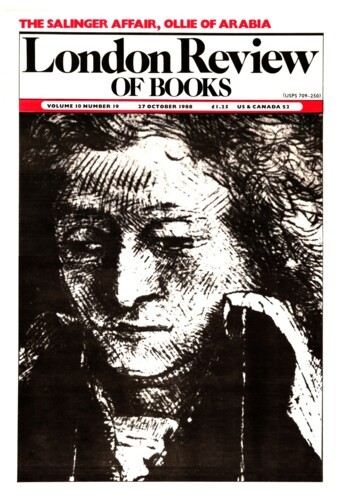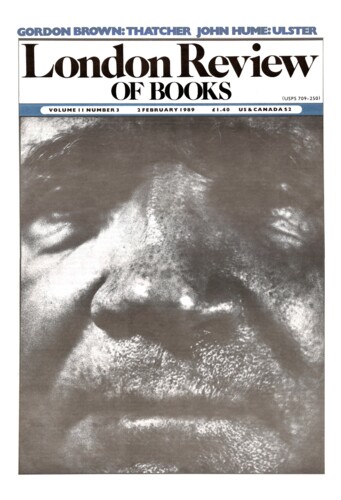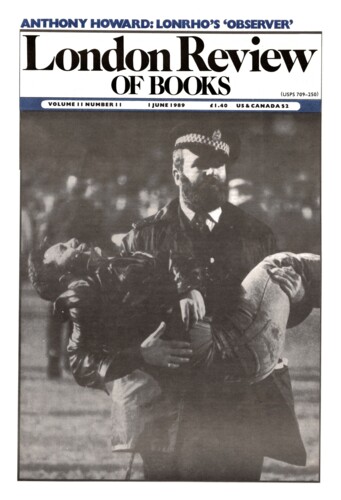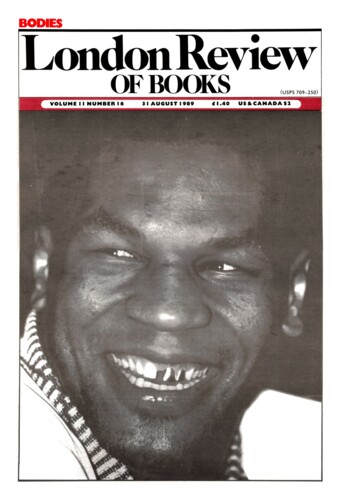Fatty
Tom Shippey, 5 May 1988
As its title so obviously shows, the main thesis of Russell Miller’s book is that L. Ron Hubbard, inventor of Dianetics and founder of Scientology, was all his life an incorrigible liar. That being the case, it is a pity that the book starts off with a statement which sounds hypocritical at best. ‘I would like to be able to thank the officials of the Church of Scientology for their help in compiling this biography.’ Miller says in an Author’s Note, ‘but I am unable to do so because the price of their co-operation was effective control of the manuscript and it was a price I was unwilling to pay.’ I can believe that the Church of Scientology wouldn’t co-operate with Miller, and I can certainly believe that Miller had worked out that he didn’t need to co-operate with them. But it is hard to imagine that Miller ever had any rational expectation of official help, or any desire for it. This book is a hatchet job, aimed at one of the nastier aspects of American culture, just like Miller’s last two (on Playboy Hefner and on the ‘House of Getty’); and hatchet jobs aren’t meant to be balanced and judicious. Also, as all the world now knows, they can be marketed much more successfully if there is some official body around foolish enough to take offence. In his first paragraph, Miller is just striking a pose.





